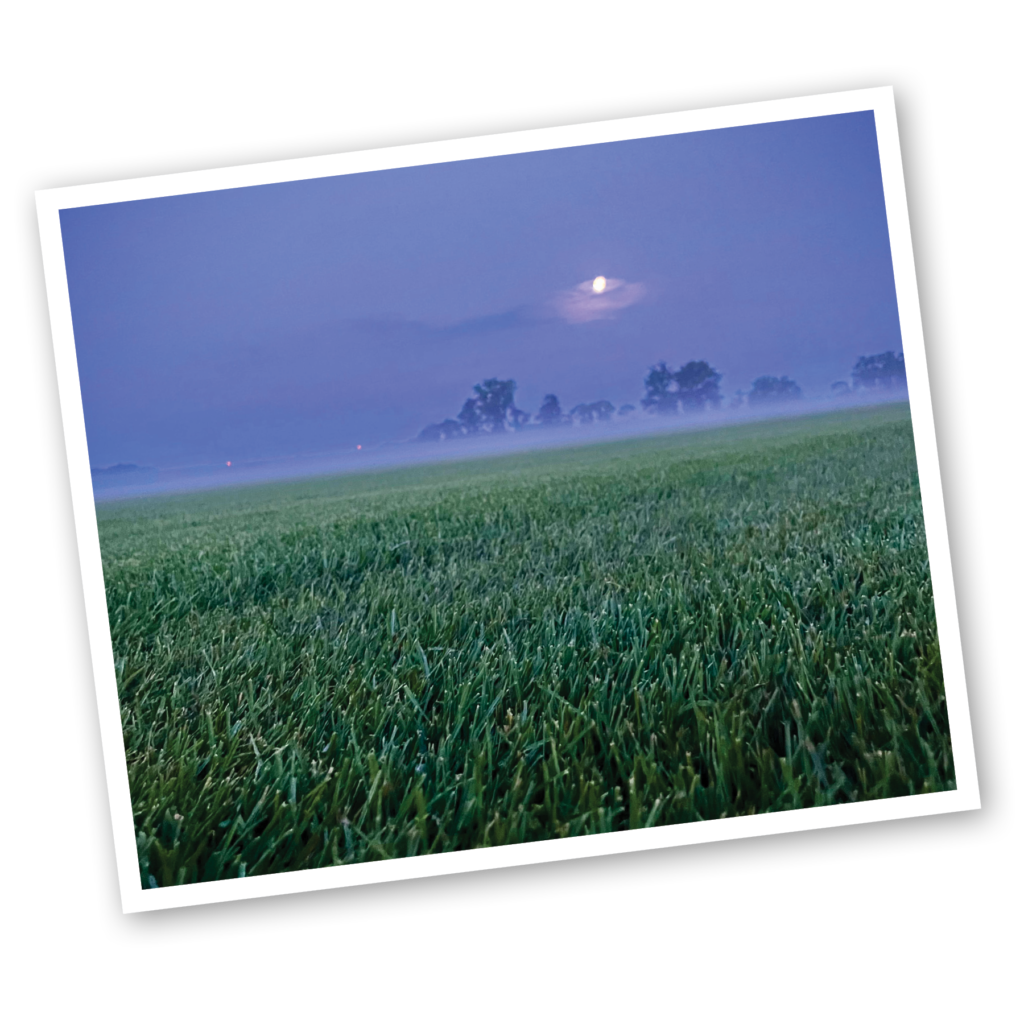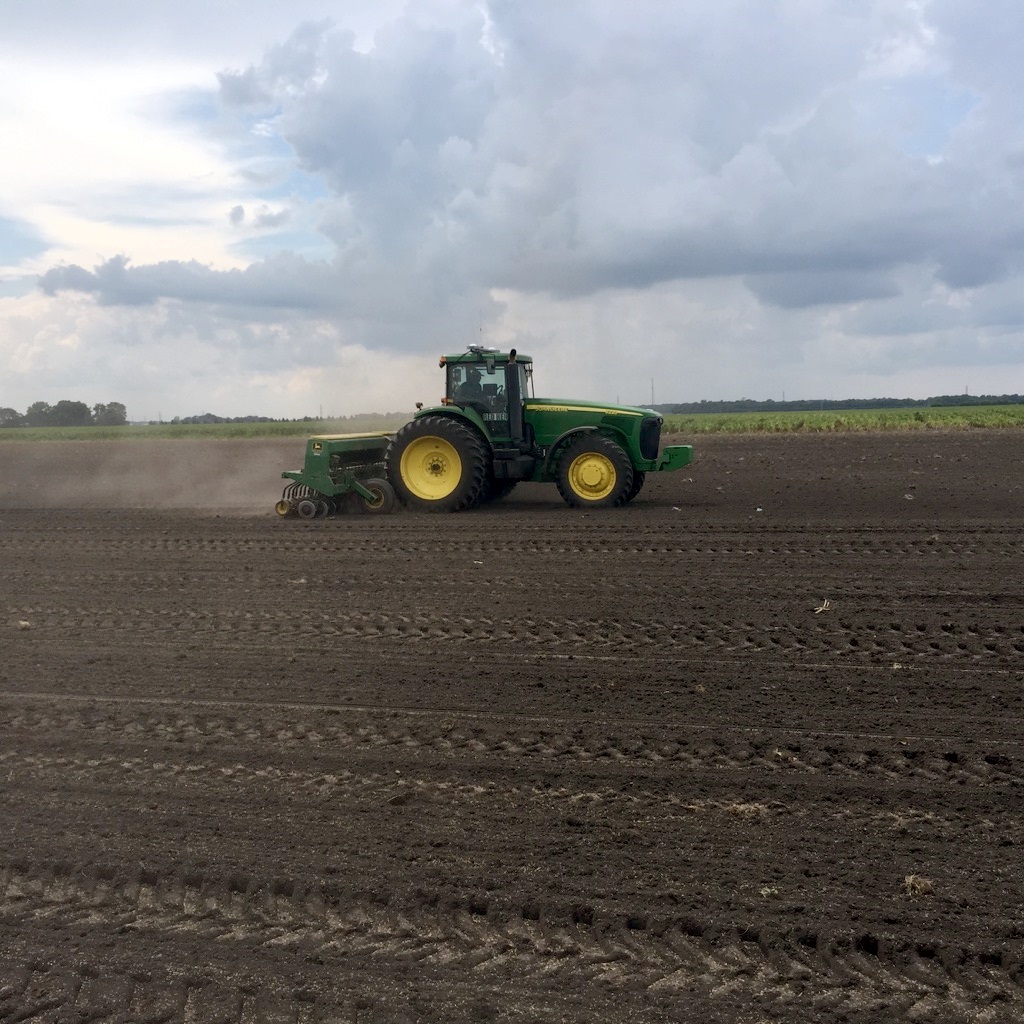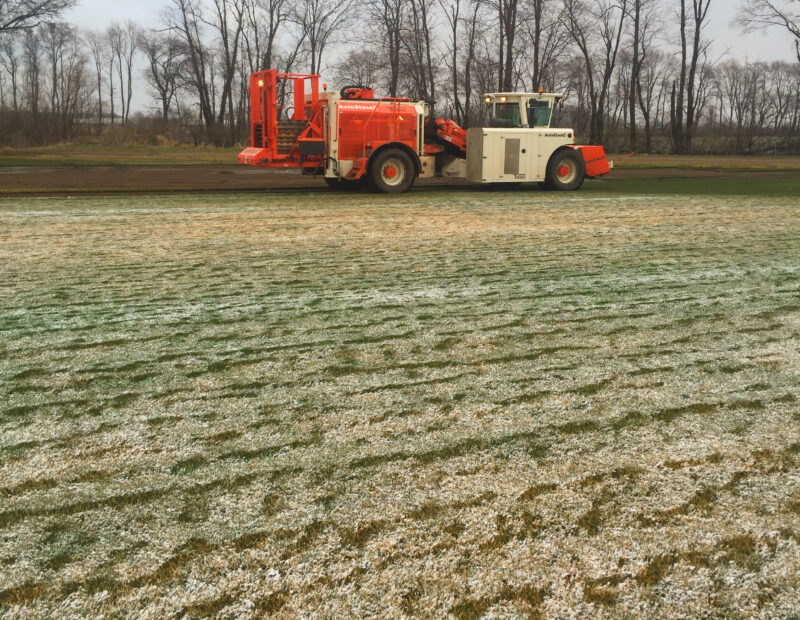
Red Hen Turf Farms produces turf grass sod and row crops on over 1,000 acres. We use the latest in technology and sound agronomic practices to benefit the productivity of the land and the environment. We are proud that our sod is used in a variety of ways to reduce erosion and water run off, beautify an area, and provide instant use of outdoor areas.
Red Hen quickly adopts technology that provides profitable and environmentally beneficial results. As an example, we use global positioning systems for soil nutrient evaluation. Soil tests are pulled on 2.5-acre zones to identify areas within a field where nutrients may be deficient or where fertility is inadequate. Using global positioning systems and variable rate controllers, we use machinery to strategically place nutrients, like phosphorus and potassium, in the right zones and in the correct amount.

The production cycle for turf grass starts with soil preparation. Soil is worked thoroughly and leveled with special equipment to ensure the seedbed is ready. Seeding is done in August. This allows new seedling grass to establish before winter and gives a natural control of annual weeds that do not survive the first frost. Throughout the establishment of bluegrass, Red Hen spoon feeds nutrients and water as needed to ensure a healthy turf grass. Regular mowing begins in May and is carried out as needed until grass is harvested. It typically takes 18 months for the plants to reach maturity and knit together to make a strong sod product. Once turf grass reaches maturity, it is kept in optimum condition until it is harvested and transplanted into your yard or athletic field. This ensures that the product you receive is at its best and ready to take root in its new home.
Tomatoes, soybeans, and corn are produced in a beneficial rotation with turf grass. Red Hen produces over 100,000 bushels of grain per year. The rotation helps maximize equipment, improves soil structure, and reduces weed pressure. These commodities are harvested and delivered to end users such as ethanol and bio diesel plants, along with local merchants who move it by rail to be used in livestock feed or to be sold for export.

The production cycle for turf grass starts with soil preparation. Soil is worked thoroughly and leveled with special equipment to ensure the seedbed is ready. Seeding is done in August. This allows new seedling grass to establish before winter and gives a natural control of annual weeds that do not survive the first frost. Throughout the establishment of bluegrass, Red Hen spoon feeds nutrients and water as needed to ensure a healthy turf grass. Regular mowing begins in May and is carried out as needed until grass is harvested. It typically takes 18 months for the plants to reach maturity and knit together to make a strong sod product. Once turf grass reaches maturity, it is kept in optimum condition until it is harvested and transplanted into your yard or athletic field. This ensures that the product you receive is at its best and ready to take root in its new home.
Grains of corn, soybeans, and wheat are produced in a beneficial rotation with turf grass. Red Hen produces over 100,000 bushels of grain per year. The rotation helps maximize equipment, improves soil structure, and reduces weed pressure. These commodities are harvested and delivered to end users such as ethanol and bio diesel plants. Grain is also sold to a local merchant who moves it by rail to be used in livestock feed or sold for export.

Updated 12/5/25
Red Hen Turf Farm’s
2025 Sod Harvesting Season
has OFFICIALLY ENDED
as of 12/5/25
due to SNOW / Precipitation and Unfavorable Field Conditions.
We had hoped to keep going until 12/19/25, but Mother Nature did not get that Memo, apparently :)
* * *
If you’re reading this in early 2026 and wonder when we might start back up again, a quick call will confirm our
SOD HARVEST FORECAST
– 574-232-6811 –
is the number to call.